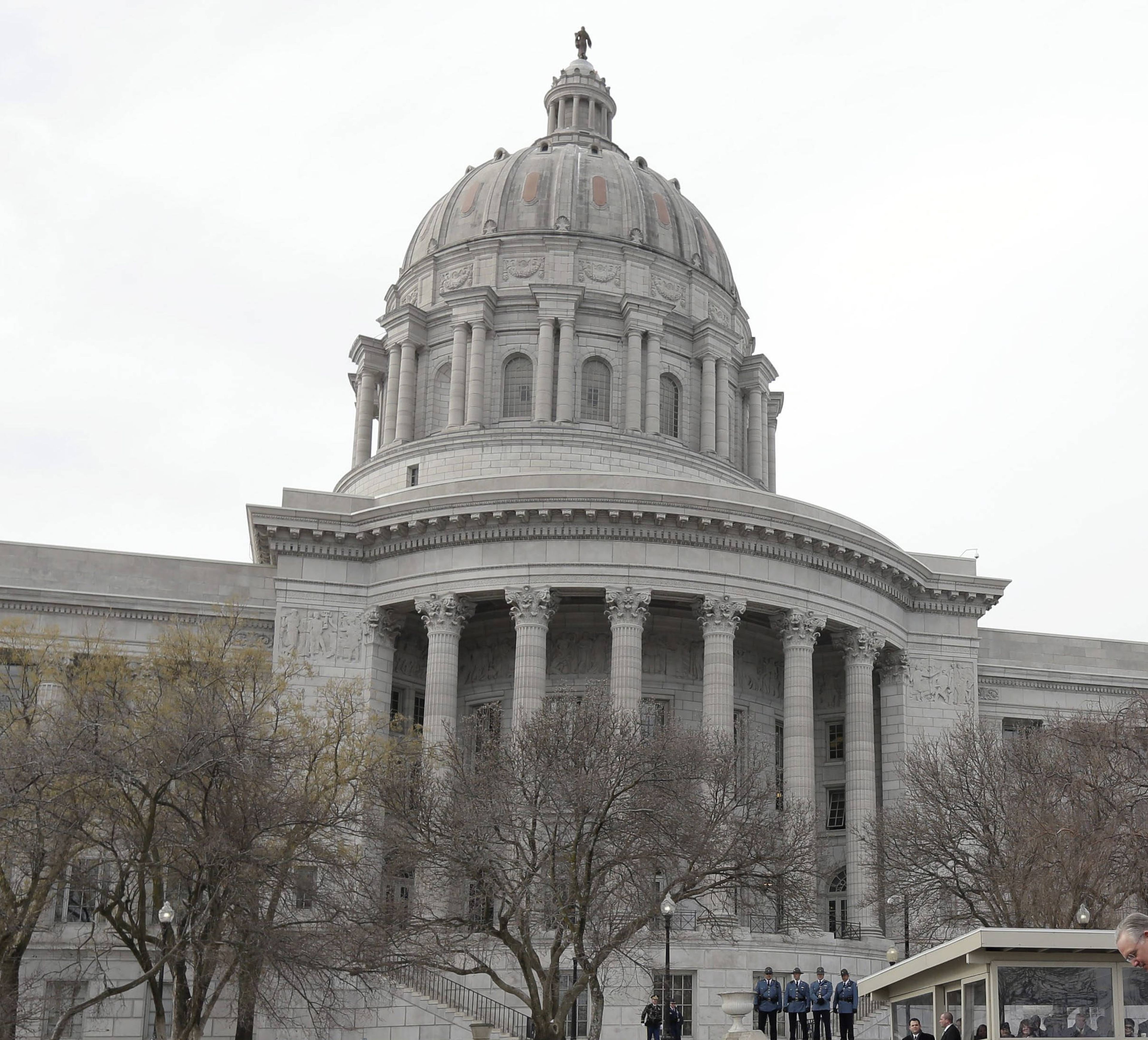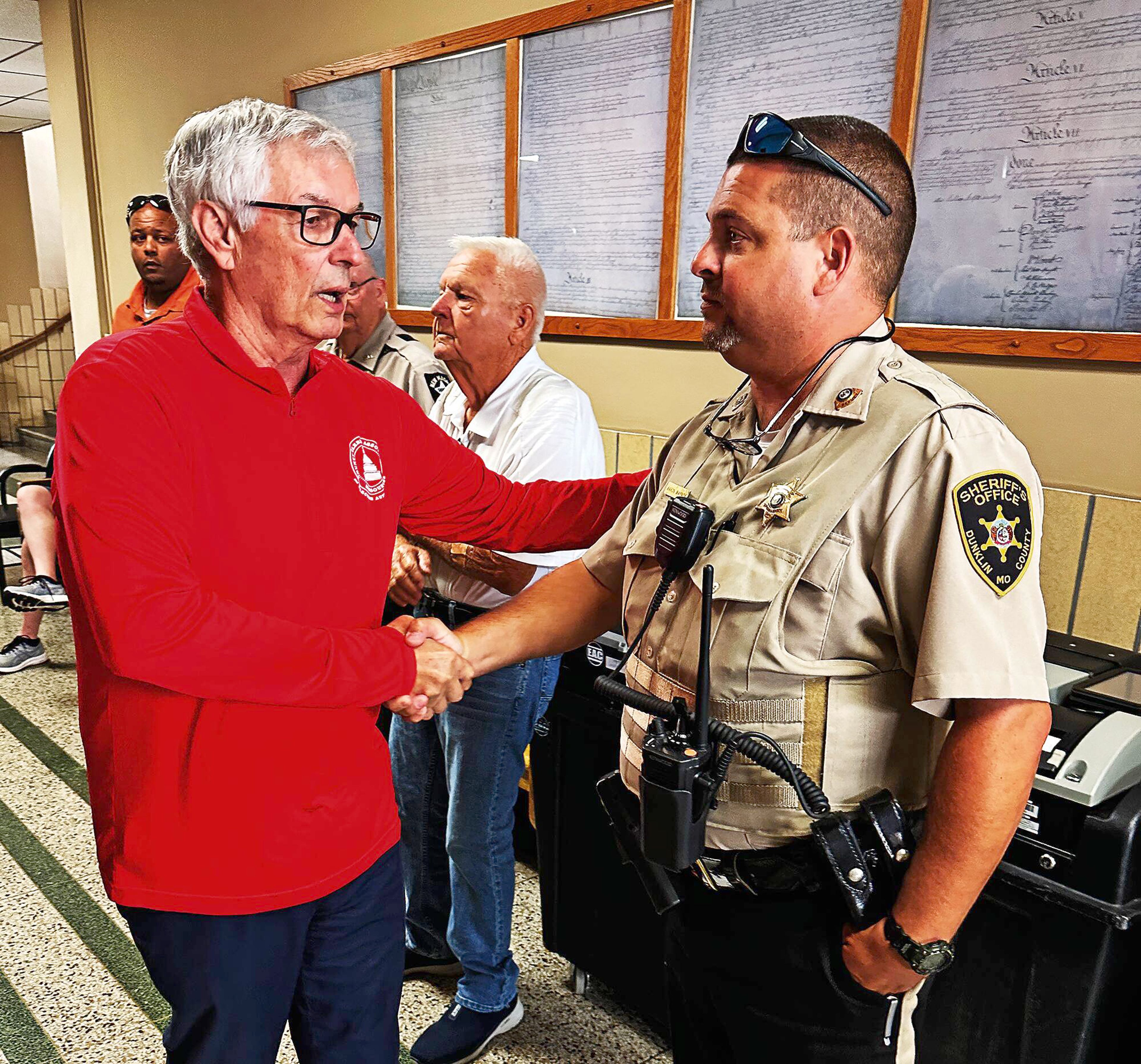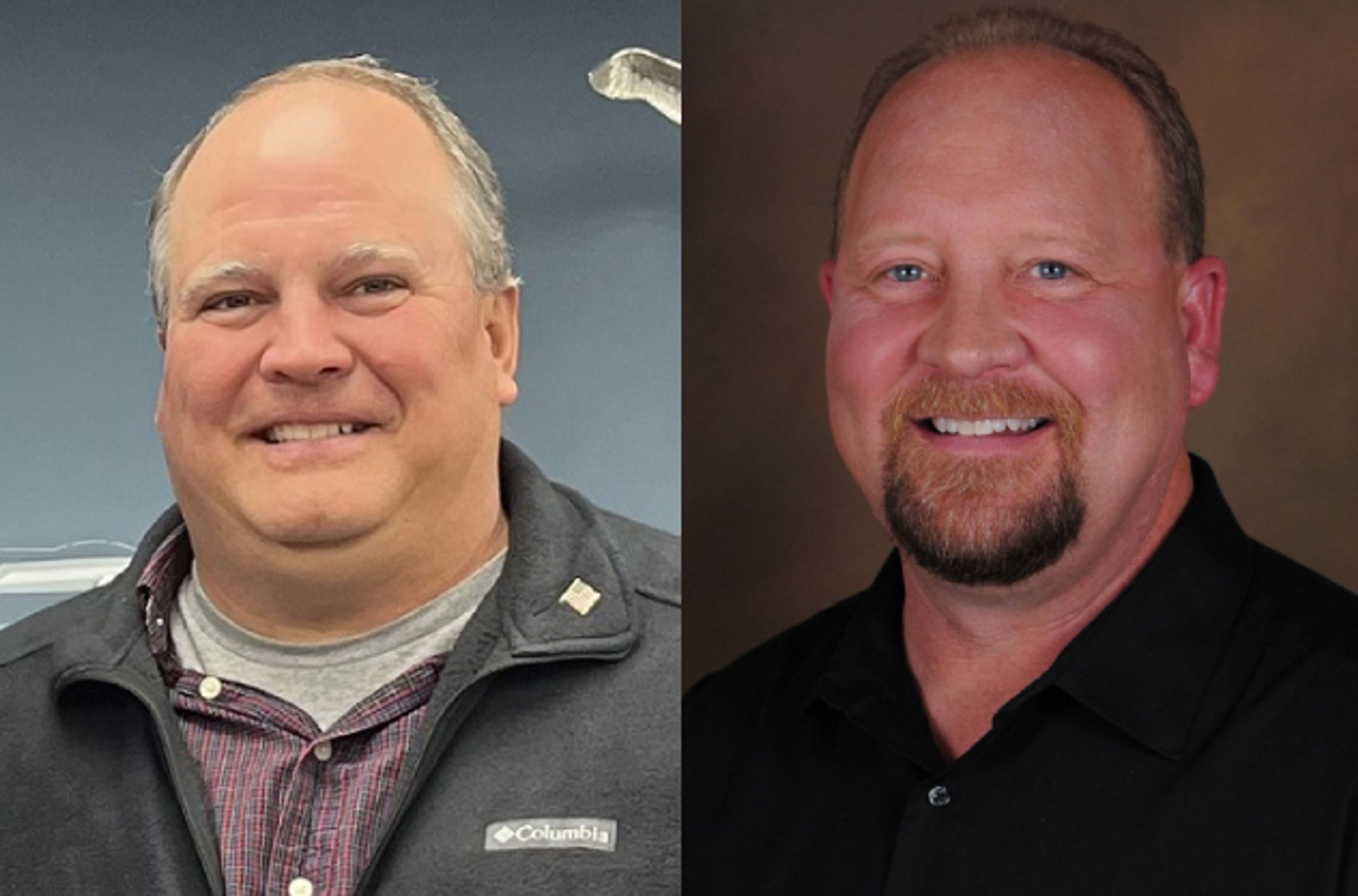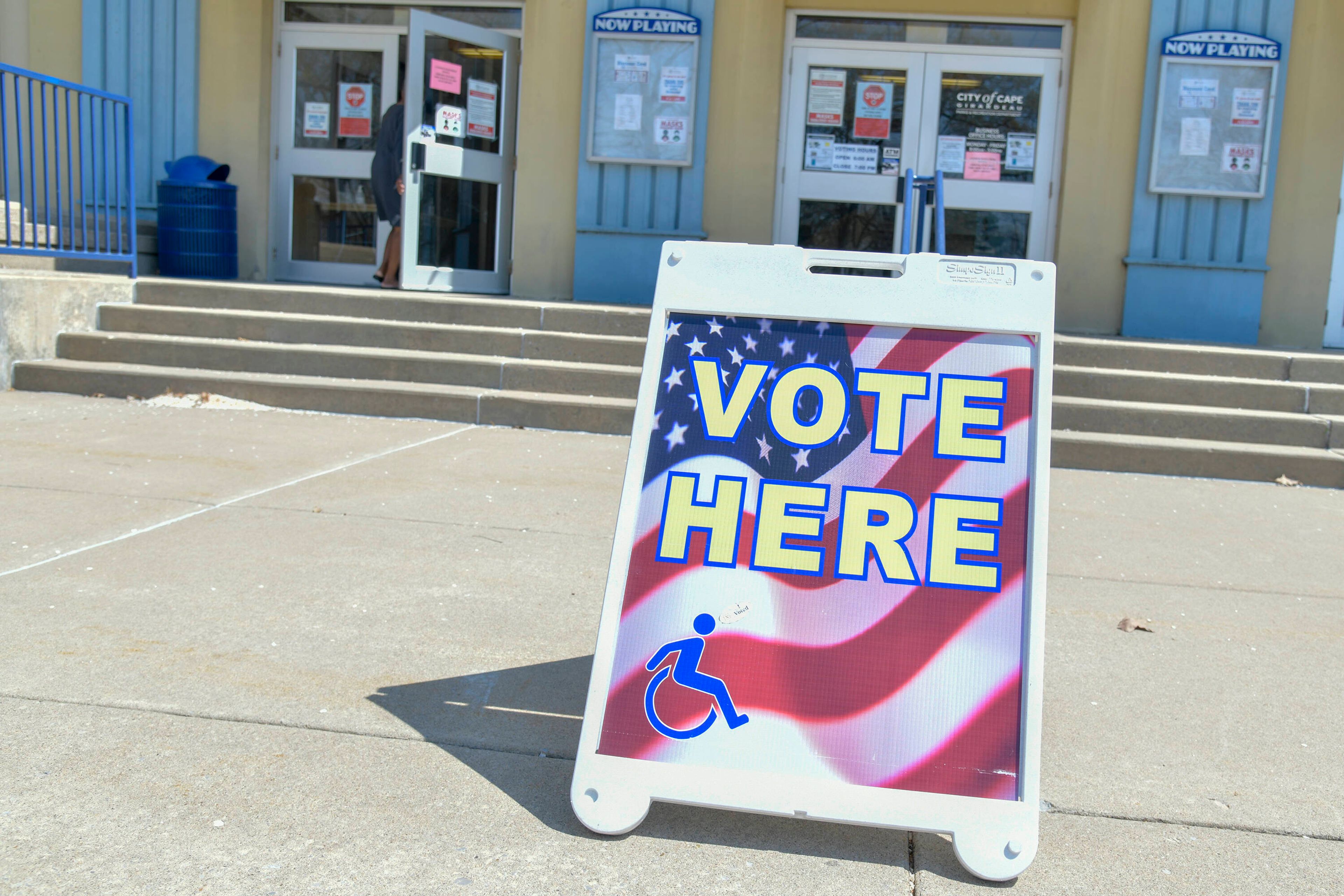District 146 Rep. Barry Hovis is seeking to once again become the Republican nominee for the seat and enter his final term, while first-time candidate Lucas Green is opposing the the incumbent during the Tuesday, Aug. 6, primary election.
Hovis of Whitewater soundly won against Democrat Gayla Dace in the 2018 election to begin his career in the state legislature, and went on to win the next two general elections while running unopposed. Prior to becoming an elected official, Hovis served for 30 years as a police officer.
Green of Cape Girardeau is an 11-year National Guard veteran with a 15-year background working in the technology sector. He and his wife own and operate Sikeston Trade Fair, and he is a member of Veterans of Foreign Wars (VFW) and American Legion.
The Southeast Missourian sent questionnaires to each candidate running in a contested race in order to inform voters on each candidate’s plans for office ahead of the Aug. 6 primary election. Candidates were asked to answer each question in 100 or fewer words. Any answer significantly longer than 100 words has been edited for brevity. Candidate responses are presented as written by the candidate and have only been edited for spelling and grammatical errors.
Why are you running for the House of Representatives?
Green: As a native of Cape County with family roots here for over 150 years, I deeply love this community. After serving in Iraq, I used to feel awkward when thanked for my service, until a fellow veteran told me to say, "You were worth it," to those who thanked me. This county and state are worth serving and being a place my kids want to call home. I have served my country in Iraq, my church, my family and my employees, because I truly desire the best for all of them and am willing to bring that to the state.
Hovis: I am running for reelection to serve the residents of District 146. I have been honored and privileged to serve for the past six years and want to continue this hard work for the district. I am a law-and-order candidate who is a pro-life, common sense conservative. I support education for all; public, parochial and private schools, improving job growth and for our area to give our kids the opportunity and chance to be employed here and not move off. I serve on six committees and am chairman of two which gives our district better opportunities to get things done.
As a state representative, what would your top legislative priority be?
Green: 99% of votes are on legislation others propose, so my priority is to ensure those bills reflect our needs and stop those that do not. Me making a name for myself should not be a priority. With that said I intend to focus on two main areas. First, ensuring Missouri remains pro-life and being a strong advocate for life. Second, addressing Jefferson City’s technology issues. It's unacceptable to wait four months or more for problems to be fixed due to poor technology. This has a direct effect on economic development and day-to-day livelihoods while wasting tax dollars.
Hovis: Crime control and truth in sentencing. After serving 30 years in law enforcement, I support our police, fire and emergency service workers and will continue to do so. I have several things I have worked on this past year and will continue to support. Most bills do not become law in their first year when filed and it takes perseverance, dedication and relationships with your fellow representatives to get good legislation passed. You can go to Missouri House of Representatives-Bill Search and search under Rep. Barry Hovis for all bills I have filed in every year I have served.
Name one state department that is underfunded and one that is overfunded.
Green: The Department of Public Safety is underfunded for two reasons. First, taxes meant to support our veterans have been redirected. The Veterans Commission, part of Public Safety, is being shortchanged, which is deceitful and unfair to our veterans. Second, we need more collaboration across all public safety sectors, and the department needs resources to handle these changes.
The Department of Elementary and Secondary Education (DESE) is overfunded and bloated. It has taken responsibilities that belong to local schools. We should reduce DESE’s scope of authority, returning control to local schools for accountable and effective local education.
Hovis: I have two that are tied as being underfunded in my opinion — the Department of Corrections and Mental Health. I personally don't think any departments are overfunded, I don't know of any representatives, including myself, that would vote to give any department more money than they need.
What is the most significant challenge the state faces at the moment?
Green: The swamp in Jefferson City, fueled by special interest money and the good ole boy system, is distorting and creating many of our problems while ignoring the wishes of Missouri residents. Entire special interest groups, often funded by a couple of individuals, push their own agendas, and most representatives go along to get a piece of the pie. In the last two years alone, my opponent has taken $30,000 from outside special interest money to oppose me. The swamp thinks they are in charge — and right now, they are. It's time for change and put the needs of our residents first.
Hovis: Funding state services and operations while keeping taxes as low as possible. Inflation is hurting the state due to it costing more to pave roads, build bridges, provide services, fund our departments and pay the state employees. In two years when most of the federal stimulus money is exhausted and gone, our budget will be facing shortfalls in funding. Those amounts will be clearer in the next two years, and tough decisions on state funding and where to allocate those monies will need to be made which could include cuts.
Gun violence is an increasingly cited concern among residents. What actions might legislators take to address the issue?
Green: Residents of District 146 have said they oppose restrictive gun laws and supported Proposition L to make our sheriff’s department one of the best-resourced using local funds. This reflects a commitment to public safety through local initiatives. As a legislator, my job is to listen to the prosecutor and law enforcement to fix poorly written laws, enforcement restrictions and sentencing guidelines based on their input. Acting without their guidance often makes things worse. Our laws should reflect the needs and values of our community, not distant policymakers, ensuring effective crime solutions while respecting residents' rights and wishes.
Hovis: Make sure that those who are committing crimes are being punished and serving time in prison. The bill I filed last year for truth in sentencing that will require mandatory time served and not a slap on the wrist, I intend to file it again this coming year if re-elected.
Law enforcement salaries are often cited as a factor in recruiting and retaining officers. Can/should the state help local governmental bodies boost officer salaries/benefits?
Green: Competitive salaries are crucial for recruiting officers. While fair pay is essential, I generally oppose state funding in local law enforcement. Just ask the schools about their experiences with state funding — they face less control and annual battles over funds driven by special interests. Instead, local funding initiatives like Proposition L in 2020, and leaders like Sheriff (Ruth Ann) Dickerson can build strong departments with local funding if it is made a priority. We need to make it a priority locally and resist the urge to allow the state to say, “I am from the government and here to help.”
Hovis: I did endorse a bill to help in funding law enforcement training reimbursement to cities and counties to offset the cost of training and hiring. There may be some other incentive tools the state could provide, but, ultimately, cities and counties are responsible for the cost for law enforcement. It should be the responsibility of each community (local control) to decide what funding should be provided to these officers. Kansas City and St. Louis City have garnered much attention for underfunding public safety. There is currently an amendment (No. 4) that the citizens of Missouri will be voting on August 6 to secure minimum funding for Kansas City police.
Changes to the state’s constitution require 50% plus 1 vote. Should that threshold be higher? If so, what should be the requirement to change the constitution?
Green: Yes, the Missouri Constitution should be how we govern and affirm our rights, not day-to-day law. I am open to several options. It can be a flat percentage from 57% to 67%. I would also consider per county or congressional district methods, too. I think reasonable people can approach how to do this differently and I am open to several of the proposed ideas being discussed. Additionally, we should consider a “clean up” of our constitution. It is now a thick book and some amendments over the years no longer apply or should be statute instead.
Hovis: I support modifying the petition initiative process to change or amend the Missouri Constitution. Only a little over half the states in the country allow amending their constitution by IP and even fewer have the 50% plus 1 vote threshold. The constitution should be harder to change than normal laws created by legislative action. It takes 3/4 of the states to amend the U.S. Constitution and I believe it should be a larger majority than currently in place to change our Missouri Constitution.
Southeast Missouri is not seeing major highway improvements in the region. Better access to four-lane roadways would help the region economically. What can our region’s lawmakers do to boost highway funding for the region?
Green: I disagree with the premise of this question. In District 146, residents talk more about the need to straighten and pave county roads, repair bridges and improve broadband and cell service. No one has mentioned to me needing more four-lane roads. While I'm open to supporting more four-lane roads for regional benefit, our residents prioritize infrastructure investments in better broadband and upgrades or repairs to existing roads and bridges. These are the improvements that will most directly enhance the quality of life and economic opportunities in our district.
Hovis: I am a supporter of improving our roadway infrastructure. The district engineer advised me recently that we have 90-plus bridges in future plans to fix and improve our roads in the southeast region, which is needed. I am also still interested in exploring and moving forward on studies for an east\west corridor usually referred to as the I-66 coast to coast interstate. This project is still number three on the federal highway plan for future funding but has not had much discussion for several years in the state.









